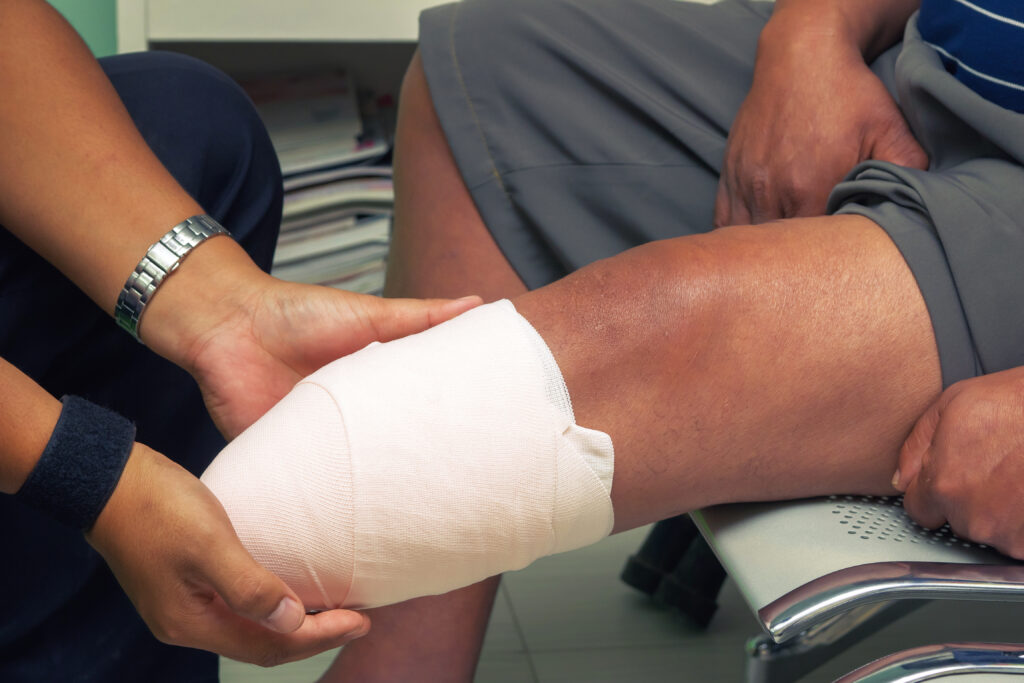Key Takeaways
Recent Posts
Categories
How to Prove Diabetes is Service-Related
Key Takeaways
Our military veterans have served our country with honor and sacrifice. When they return home, they deserve to be treated with the utmost respect and care. Military life is challenging and often leaves lasting impacts on both the body and mind. These experiences can result in lifelong health conditions, including diabetes, due to exposure to various factors or the immense stress endured during service. If you believe your diabetes is related to your service, you deserve to have your voice heard and your condition recognized by the VA. This blog will guide you on how to prove your diabetes is service-related, ensuring you receive the support and benefits you deserve.
Types of Diabetes
Diabetes is a chronic condition that comes in several forms, each with its own causes and characteristics. Understanding the type of diabetes you have is the first step in proving its connection to your military service. Each type may have different evidence requirements and medical evaluations, and understanding these nuances can significantly impact the success of your claim.
Type 1 Diabetes: Often diagnosed in childhood or young adulthood, Type 1 diabetes results from the immune system attacking insulin-producing cells in the pancreas.
Type 2 Diabetes: Typically develops in adults and is often associated with lifestyle factors such as obesity and physical inactivity. However, it can also have a genetic component.
Gestational Diabetes: Occurs during pregnancy and can increase the risk of developing Type 2 diabetes later in life.

How Does Diabetes Relate to Military Service?
Diabetes can be linked to military service through various forms of service connection, which are crucial for veterans seeking to establish the condition as service-related. By understanding these different forms of service connection, veterans can better navigate the process of proving their diabetes is related to military service.
Direct Service Connection
A direct service connection requires demonstrating that diabetes was incurred or aggravated during active military service. This can be shown through medical records indicating the onset of diabetes symptoms or a diagnosis while in service. Additionally, evidence of exposure to certain conditions or stressors during service that directly contributed to the development of diabetes can support a direct service connection.
Secondary Service Connection
Diabetes can also be connected to military service as a secondary condition, meaning it resulted from another service-connected condition. For example, if a veteran has a service-connected injury or illness that led to the development of diabetes, such as a pancreas injury or a condition that caused significant weight gain and insulin resistance, they may be eligible for a secondary service connection.
Service Connection by Legal Presumption
Certain conditions are presumed to be service-connected if a veteran served in specific circumstances. If diabetes begins within one year of discharge, regardless of where the veteran served, they may be entitled to presumptive service connection. This means that the veteran does not need to provide evidence that directly links their diabetes to their military service; the presumption is made based on the onset of the condition within the specified timeframe.
Agent Orange Exposure
Veterans exposed to Agent Orange or other herbicides during their service may face an increased risk of developing Type 2 diabetes, among other health issues. This presumption simplifies the process of establishing a service connection for diabetes, as the burden of proof is significantly reduced.
Common Secondary Conditions Associated with Diabetes
Diabetes is a complex condition that can lead to various secondary health issues. These complications can significantly impact a veteran’s quality of life and may also be service-connected if the primary diabetes diagnosis is linked to military service. Understanding these secondary conditions is essential for comprehensive care and effective claims. Here are some common secondary conditions associated with diabetes:
Diabetic neuropathy is a type of nerve damage that can occur if you have diabetes. High blood sugar levels can injure nerves throughout your body, but diabetic neuropathy most often damages nerves in your legs and feet. Symptoms can range from pain and numbness to digestive issues and urinary problems.
Diabetes greatly increases the risk of various cardiovascular problems, including coronary artery disease with chest pain (angina), heart attack, stroke, and narrowing of the arteries (atherosclerosis). Veterans with diabetes need regular cardiovascular check-ups to monitor their heart health.
Diabetic retinopathy is a diabetes complication that affects the eyes. It’s caused by damage to the blood vessels of the light-sensitive tissue at the back of the eye (retina). This condition can lead to vision impairment and blindness if not properly managed.
Diabetes is a leading cause of kidney failure. Over time, high blood sugar levels can damage the kidneys' delicate filtering system, leading to chronic kidney disease (CKD) and ultimately necessitating dialysis or kidney transplant for survival.
Diabetes can leave the skin more susceptible to bacterial and fungal infections. Common skin conditions associated with diabetes include bacterial infections like boils and carbuncles, fungal infections like athlete's foot and ringworm, and itching caused by poor circulation.
Hearing loss is more common in people with diabetes. High blood sugar levels can damage the small blood vessels and nerves in the inner ear, leading to hearing problems.
Managing a chronic condition like diabetes can take a toll on mental health, leading to conditions such as depression and anxiety. The stress of managing diabetes and its complications can exacerbate these mental health issues.
Diabetes can affect the normal functioning of the gastrointestinal tract, leading to conditions such as gastroparesis (delayed stomach emptying), which causes nausea, vomiting, and digestive difficulties.
Diabetes can result in foot problems due to nerve damage and poor circulation. Common issues include infections, ulcers, and, in severe cases, amputations.
Diabetes can increase the risk of gum disease and other dental problems. High blood sugar levels can weaken the body's ability to fight off infections, including those in the mouth.
Getting Compensation for Service-Connected Conditions
VA disability benefits provide financial support to veterans whose disabilities are connected to their military service. Proving service connection for diabetes requires gathering medical records, service records documenting exposures or injuries, and expert medical opinions linking the condition to military service.
How Can a VA Lawyer Help Your Case?
If a veteran's VA disability claim is denied, a VA lawyer can provide essential support in the appeals process. They assist in gathering additional evidence, filing a Notice of Disagreement (NOD), and representing the veteran at hearings before the Board of Veterans’ Appeals.
With expertise in VA law and procedures, a disability lawyer can ensure that all secondary conditions are considered, potentially increasing the overall compensation. They advocate continuously, aiming to secure the benefits the veteran deserves by effectively presenting the case and providing legal arguments to support the claim. At Wettermark Keith, our attorneys are accredited by the VA to help veterans navigate these challenges and obtain the benefits they deserve from their service.
Trust Wettermark Keith With Your VA Disability Claim
At Wettermark Keith™, we have an excellent reputation as one of the most accomplished personal injury firms in the country. We offer a diverse range of practice areas, including personal injury cases, auto wrecks, trucking wrecks, nursing home abuse, medical malpractice, on-the-job injuries, social security, and VA disability, to name just a few. At Wettermark Keith, we believe in taking cases personally. Our purpose is to practice with care and compassion - to tell our clients' stories and make their voices heard. We achieve this by building strong relationships based on constant communication and an unwavering dedication to truth and trust.
Frequently Asked Questions
To prove your diabetes is service-related, you need to provide comprehensive evidence including service medical records showing symptoms or diagnosis during military service, continuous post-service medical records detailing your diabetes progression, and a nexus letter from a medical professional linking your diabetes to your military service. Personal statements from you and witnesses, duty assignments, and exposure evidence (especially for those exposed to substances like Agent Orange) are also crucial.
Additionally, attending all VA Compensation and Pension (C&P) exams is vital, as these evaluations play a significant role in supporting your claim.
There is no specific time limit for veterans to apply for a service connection for diabetes. Veterans can file a claim for VA disability benefits at any time after their discharge from the military. However, it is advantageous to apply as soon as possible, as establishing a service connection is generally easier with timely documentation linking the condition to military service. Additionally, applying within one year of discharge can provide certain presumptions that may simplify the process and potentially lead to back pay from the date of discharge.
Not all diabetes qualifies as service-related. For diabetes to be considered service-connected, a veteran must demonstrate that the condition either began during military service or was aggravated by it.
There are several pathways to establishing a service connection for diabetes:
- Direct Service Connection: The veteran must show that diabetes was diagnosed or symptoms began during active duty.
- Secondary Service Connection: The veteran must show that diabetes developed as a result of another service-connected condition.
- Presumptive Service Connection: Certain veterans, such as those exposed to Agent Orange during the Vietnam War, may have their diabetes presumed to be service-connected without needing to prove a direct link. Similarly, veterans who develop diabetes within one year of discharge, regardless of their location of service, are also eligible for presumptive service connection.
Yes, you can still receive compensation if your diabetes was a pre-existing condition that worsened due to your military service. The VA recognizes that conditions aggravated by military service can be eligible for benefits through a process known as "service connection by aggravation." This requires demonstrating that your time in service significantly worsened your diabetes beyond its natural progression.
Comprehensive medical documentation showing the baseline severity of your diabetes before service and the increased severity due to service is essential. Additionally, a medical nexus letter from a healthcare provider linking the aggravation of your condition to your military service will strengthen your claim.
Wettermark Keith has a proven track record of success in handling VA disability claims, including those related to diabetes. Our VA-accredited attorneys ensure that you receive legitimate and trustworthy legal services, giving you peace of mind that your case is in good hands. We offer free consultations and work on a contingency fee basis, which means you won't pay any upfront costs and only pay if we win your case.
YOU DON’T HAVE TO DO THIS ALONE
CONTACT VA DISABILITY LAWYERS
To learn more about our law firm, our services, how to access our veterans law resources, and more, contact us today.
You get a free consultation and we won’t charge you a dime until we’ve won your case.


